David O'Callaghan
A Feature Selection Method for Driver Stress Detection Using Heart Rate Variability and Breathing Rate
Feb 03, 2023Abstract:Driver stress is a major cause of car accidents and death worldwide. Furthermore, persistent stress is a health problem, contributing to hypertension and other diseases of the cardiovascular system. Stress has a measurable impact on heart and breathing rates and stress levels can be inferred from such measurements. Galvanic skin response is a common test to measure the perspiration caused by both physiological and psychological stress, as well as extreme emotions. In this paper, galvanic skin response is used to estimate the ground truth stress levels. A feature selection technique based on the minimal redundancy-maximal relevance method is then applied to multiple heart rate variability and breathing rate metrics to identify a novel and optimal combination for use in detecting stress. The support vector machine algorithm with a radial basis function kernel was used along with these features to reliably predict stress. The proposed method has achieved a high level of accuracy on the target dataset.
Recurrent Super-Resolution Method for Enhancing Low Quality Thermal Facial Data
Sep 21, 2022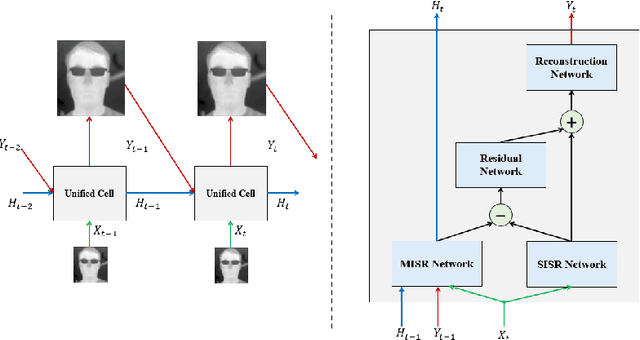

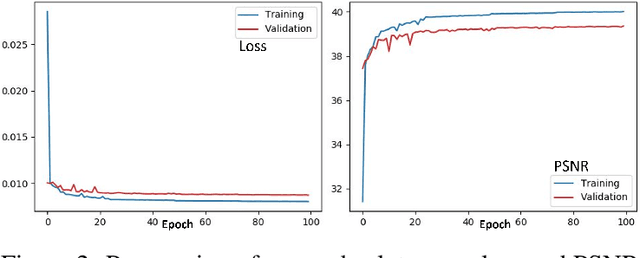
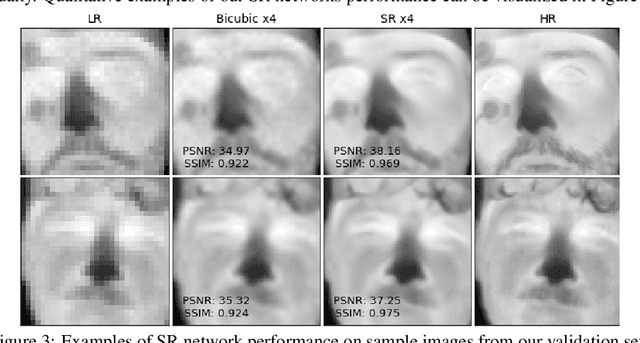
Abstract:The process of obtaining high-resolution images from single or multiple low-resolution images of the same scene is of great interest for real-world image and signal processing applications. This study is about exploring the potential usage of deep learning based image super-resolution algorithms on thermal data for producing high quality thermal imaging results for in-cabin vehicular driver monitoring systems. In this work we have proposed and developed a novel multi-image super-resolution recurrent neural network to enhance the resolution and improve the quality of low-resolution thermal imaging data captured from uncooled thermal cameras. The end-to-end fully convolutional neural network is trained from scratch on newly acquired thermal data of 30 different subjects in indoor environmental conditions. The effectiveness of the thermally tuned super-resolution network is validated quantitatively as well as qualitatively on test data of 6 distinct subjects. The network was able to achieve a mean peak signal to noise ratio of 39.24 on the validation dataset for 4x super-resolution, outperforming bicubic interpolation both quantitatively and qualitatively.
Exploring the Impact of Tunable Agents in Sequential Social Dilemmas
Jan 28, 2021
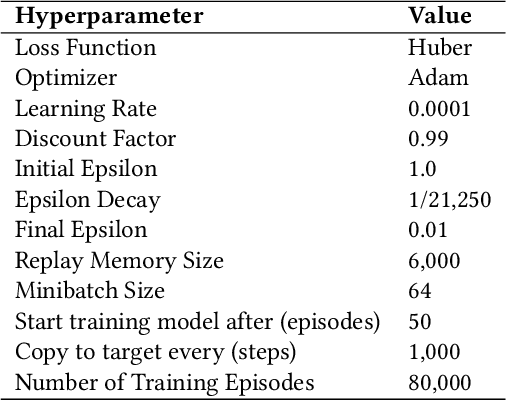
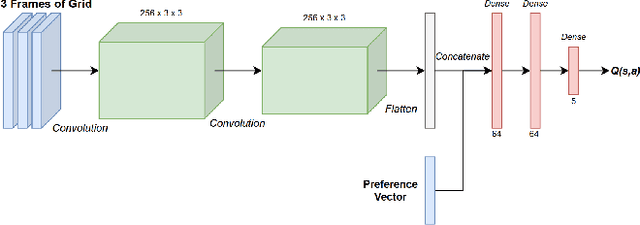
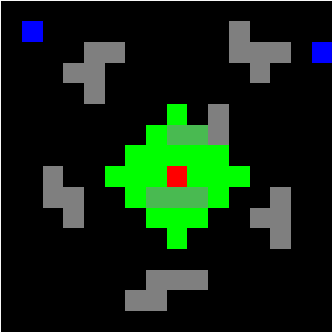
Abstract:When developing reinforcement learning agents, the standard approach is to train an agent to converge to a fixed policy that is as close to optimal as possible for a single fixed reward function. If different agent behaviour is required in the future, an agent trained in this way must normally be either fully or partially retrained, wasting valuable time and resources. In this study, we leverage multi-objective reinforcement learning to create tunable agents, i.e. agents that can adopt a range of different behaviours according to the designer's preferences, without the need for retraining. We apply this technique to sequential social dilemmas, settings where there is inherent tension between individual and collective rationality. Learning a single fixed policy in such settings leaves one at a significant disadvantage if the opponents' strategies change after learning is complete. In our work, we demonstrate empirically that the tunable agents framework allows easy adaption between cooperative and competitive behaviours in sequential social dilemmas without the need for retraining, allowing a single trained agent model to be adjusted to cater for a wide range of behaviours and opponent strategies.
 Add to Chrome
Add to Chrome Add to Firefox
Add to Firefox Add to Edge
Add to Edge